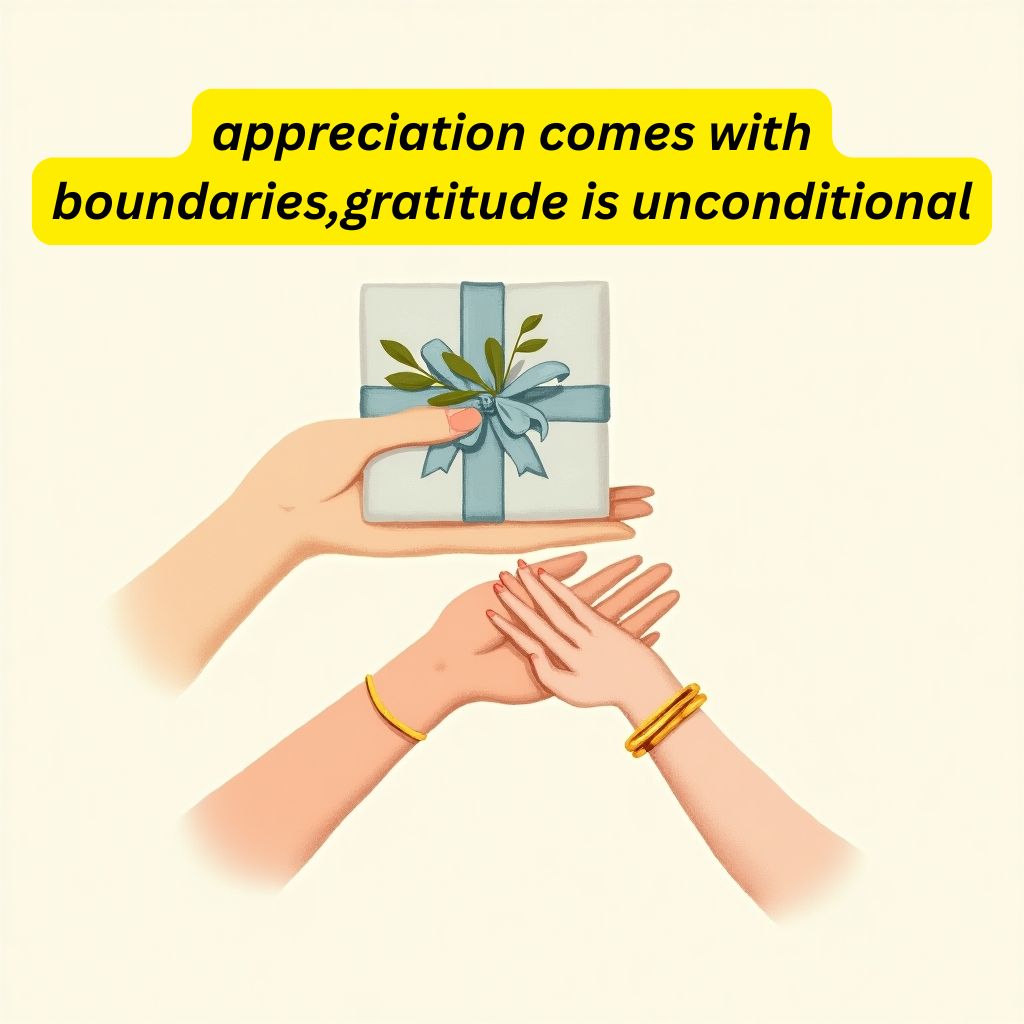
Appreciation and gratitude are often used interchangeably, but they carry profoundly different energies. Appreciation tends to be situational and conditional. It is expressed when someone meets certain expectations, achieves something noteworthy, or does something that aligns with our values. In essence, appreciation arises within boundaries—defined by personal preferences, social norms, or even cultural standards. It has limits because it depends on external factors or specific actions.
Gratitude, however, transcends these limits. It is a state of being rather than a reaction. Gratitude flows from an inner recognition of life’s gifts, big or small, without demanding conditions. One can feel gratitude even in hardship because it comes from acknowledging existence itself, relationships, and experiences—without judgment or measurement.
The quote beautifully captures this difference. Appreciation can be withheld or withdrawn when boundaries are crossed, but gratitude remains unconditional. Gratitude does not ask, “Did they deserve it?” or “Was it enough?” It simply exists, offering peace and contentment to the one who holds it.
Cultivating gratitude leads to resilience and emotional freedom. While appreciation is important in building relationships and acknowledging others, gratitude transforms how we see the world. It allows us to value life even when expectations aren’t met.
Apreciación y gratitud suelen confundirse, pero en realidad tienen energías muy diferentes. La apreciación tiende a ser situacional y condicional. Se expresa cuando alguien cumple ciertas expectativas, logra algo destacable o actúa según nuestros valores. En esencia, la apreciación surge dentro de límites definidos por preferencias personales, normas sociales o estándares culturales. Tiene fronteras porque depende de factores externos o acciones concretas.
La gratitud, en cambio, trasciende esos límites. Es un estado del ser más que una reacción. La gratitud fluye de un reconocimiento interno de los dones de la vida, grandes o pequeños, sin exigir condiciones. Uno puede sentir gratitud incluso en la dificultad porque proviene de reconocer la existencia, las relaciones y las experiencias sin juicio ni medida.
La cita capta esta diferencia de forma hermosa. La apreciación puede retirarse cuando se cruzan límites, pero la gratitud permanece incondicional. La gratitud no pregunta, “¿Lo merecían?” o “¿Fue suficiente?”. Simplemente existe, ofreciendo paz y plenitud a quien la practica.
Cultivar gratitud conduce a la resiliencia y la libertad emocional. Aunque la apreciación es vital para reconocer a otros, la gratitud transforma nuestra visión del mundo y nos permite valorar la vida incluso cuando las expectativas no se cumplen.